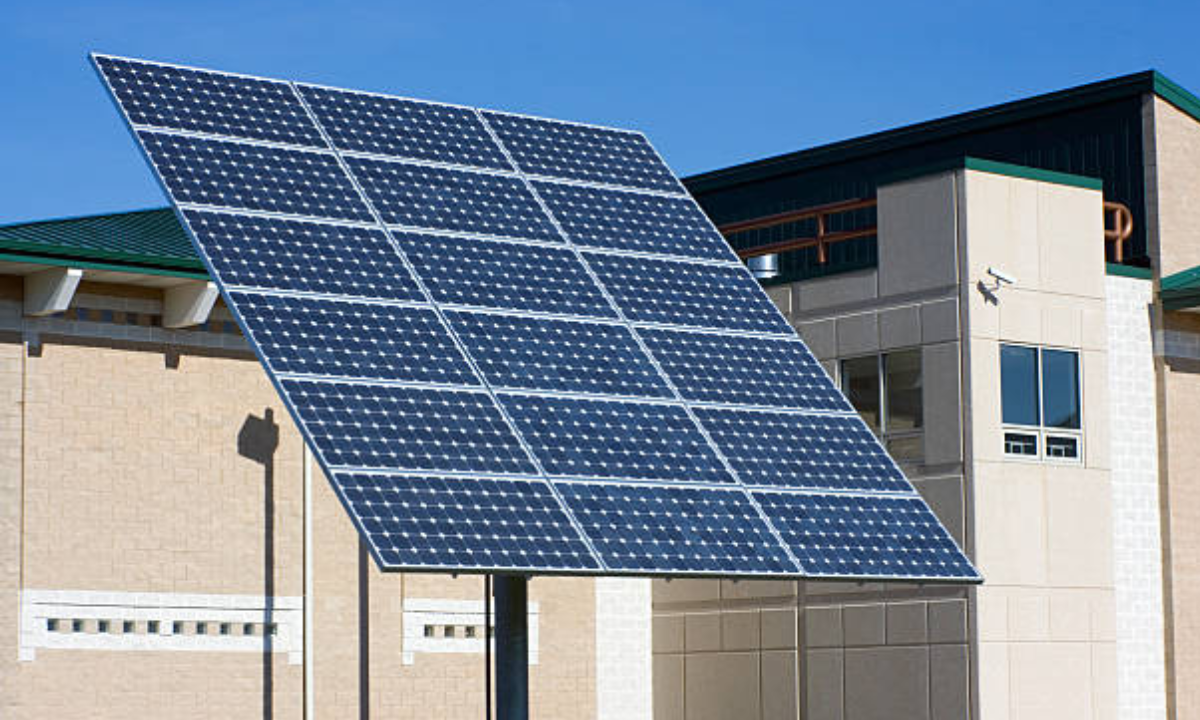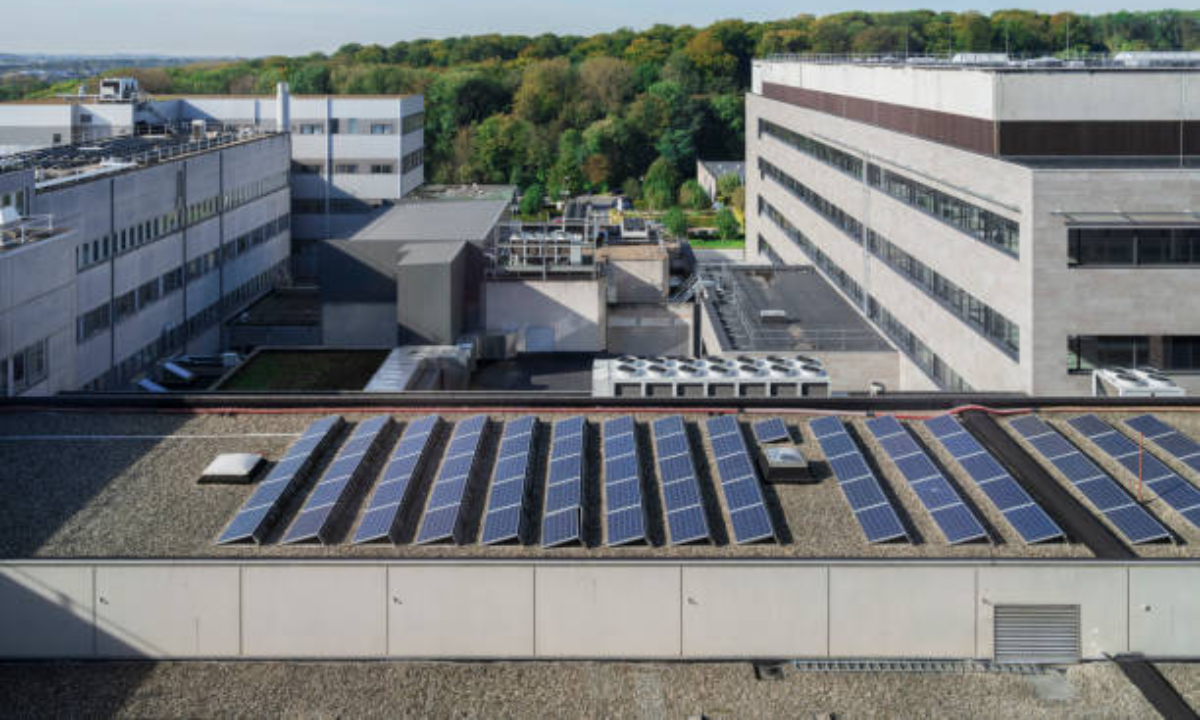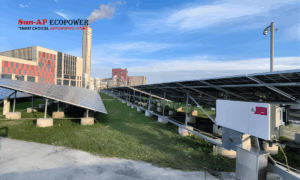By utilizing solar panels, healthcare facilities can minimize their reliance on traditional power sources, lower energy expenses, and improve overall operational efficiency. In today’s world, when sustainability and cost-effectiveness are top priorities, health clinics and hospitals are increasingly turning to solar panels to meet their energy needs. This transition not only helps greater environmental goals, but it also has significant financial and operational implications.
In India, an increasing number of solar panel distributors are making it easier for health clinics and hospitals to obtain high-quality solar solutions. These distributors provide critical support, such as installation and maintenance services, to assist healthcare facilities in making a smooth transition to solar power. This transition not only coincides with global sustainability trends but also has practical benefits, such as lower energy costs and greater energy reliability. As more healthcare facilities investigate the benefits of solar energy, solar panel wholesalers in India play an increasingly essential role in supporting this critical shift.
Advantages of Using Solar Panels in Health Clinics and Hospitals

Solar panels provide numerous benefits to health clinics and hospitals, changing the way these critical facilities handle their energy needs. One of the main advantages is cost reduction. Solar panels allow healthcare facilities to lessen their dependence on the grid, resulting in significantly lower electricity costs. This generated power can sustain critical tasks like lighting and medical equipment, resulting in significant long-term savings.
Solar panels offer financial advantages while also enhancing energy independence. They provide a consistent and steady supply of electricity, reducing dependency on the grid and mitigating the effects of power outages – a critical component in guaranteeing continuous medical services. Furthermore, using solar energy aligns with environmental aims, allowing healthcare facilities to contribute to a better world while lowering their environmental imprint. Solar panel distributors in India play a key role in this transformation since they provide installation and maintenance services, allowing health clinics and hospitals to seamlessly integrate solar solutions into their operations.
Cost Savings and Reduced Energy Expenses
Installing solar panels can significantly reduce costs for health clinics and hospitals. Here’s how these savings typically occur:
Lower Energy expenditures: Solar panels can drastically reduce your monthly power expenditures. Given the high energy usage of healthcare institutions, these savings can mount up over time and significantly impact the budget.
Return on Investment (ROI): While the initial cost of installing solar panels is high, the long-term financial benefits are substantial. Savings on energy bills, along with potential government incentives, can yield a substantial return on investment.
Predictable Costs: Solar energy systems offer predictable energy costs because sunshine is free. This stability allows healthcare facilities to better manage their budgets, decreasing uncertainty from variable energy prices and allowing for more efficient resource allocation.
Environmental Benefits of Solar Panels in Healthcare
Solar panels offer a variety of environmental advantages to healthcare facilities:
Reduced Carbon Footprint: By utilizing solar energy, healthcare facilities can significantly reduce their dependence on fossil fuels. This technique minimizes greenhouse gas emissions, leading to cleaner air and a healthier ecosystem.
Sustainable Practices: Using solar electricity aligns with broader sustainability objectives and displays a commitment to environmental responsibility. Using renewable energy sources enables healthcare facilities to contribute to global efforts to reduce their environmental impact.
Pollution reduction: Solar panels provide electricity without emitting pollutants into the atmosphere or water. This clean energy source promotes the overall health of the community and environment, making it a good choice for reducing pollutants and improving air quality.
Considerations When Installing Solar Panels in Healthcare Facilities:
Before installing Panasonic solar panels in healthcare companies, there are certain crucial considerations to make.
Energy Needs Assessment: Start by analyzing the facility’s energy consumption patterns to identify the best size and kind of solar system. Understanding your energy requirements ensures that the solar system meets the facility’s needs.
Site Assessment: Ensure that the installation location is appropriate for solar panels. This includes ensuring that the panels get enough sunshine and that the framework can support them. A thorough site assessment is essential to improve the efficiency and efficacy of the solar system.
Cost Analysis: Conduct an in-depth cost-benefit analysis to evaluate the initial investment, potential energy savings, and financing options. This research helps to understand the costs and benefits of solar installation.
Care and Durability: While solar panels normally require little care, they must be inspected and maintained regularly to ensure proper performance and longevity. Proper maintenance improves the efficiency and effectiveness of a solar energy system.
Government incentives and grants for installing solar panels in healthcare
In India, there are numerous government incentives and initiatives available to encourage the use of REC solar panels in healthcare facilities:
Subsidies and Grants: The Ministry of New and Renewable Energy (MNRE) provides subsidies and grants to aid with the upfront costs of installing solar panels. Healthcare establishments can apply for these financial incentives to help make solar systems more affordable.
Accelerated Depreciation: Healthcare establishments can benefit from accelerated depreciation for solar installations. This clause allows for large tax savings, making the cost of installing solar panels more manageable.
State-Specific Incentives: Many states provide additional incentives to encourage the use of solar energy, such as tax breaks and specific financing programs. Healthcare administrators should contact local authorities to find and take advantage of state-specific programs.
Conclusion: The Future of Solar Energy in Healthcare
The installation of solar panels in health clinics and hospitals marks a substantial advance in energy management for the healthcare business. As healthcare facilities prioritize sustainability and economic efficiency, solar energy appears to be a realistic solution that addresses both. Solar panels offer various advantages, including the potential to reduce energy costs and enhance environmental results, and are backed by a variety of government incentives. As a result, they will have a big impact on India’s future healthcare system.
Embracing solar technology corresponds with global environmental trends while providing operational and financial benefits to healthcare organizations. As solar technology progresses and costs fall, solar panel distributors in India become increasingly important. These wholesalers simplify the transition to solar energy by providing essential services such as installation and maintenance. As more healthcare institutions use solar solutions, they contribute to a more sustainable and cost-effective future, increasing the total efficiency and environmental impact of medical facilities across the country.
Sun-AP Ecopower is one of the leading solar panel distributors in India, providing high-quality solar products nationwide.




